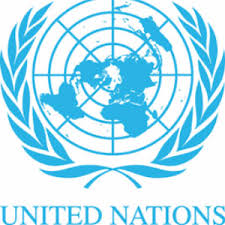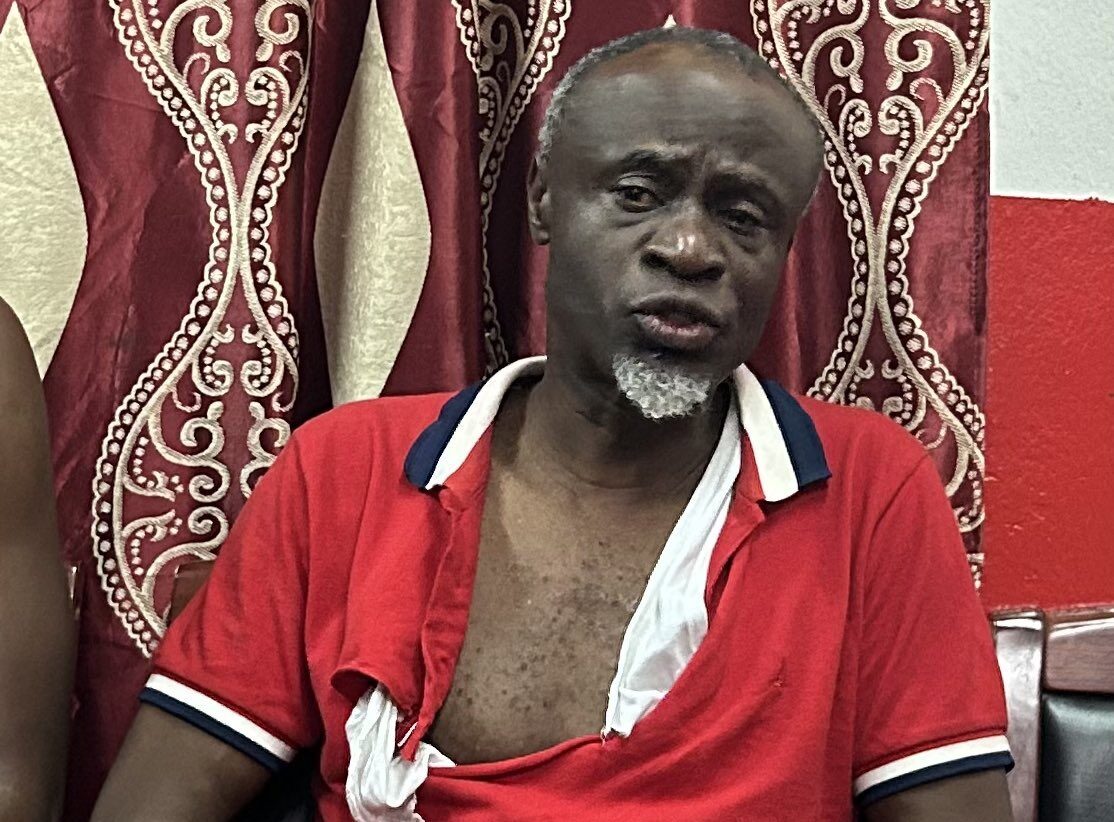- UNCT & British High Commissioner discuss Inclusive Growth, Climate & Governance
UN Resident Coordinator discuss Inclusive growth, climate and governance with the British High Commissioner On Wednesday, UN Resident Coordinator (RC) Seraphine Wakana, together with the Head of UN Women, the Assistant FAO Representative(Programme) and other colleagues from UNDP, UN Women and the Economist in the Resident coordinator’s Office met with the British High Commissioner to Sierra Leone, H.E. Josephine Gould, to discuss issues that would help shape the UK’s approach to working and partnering with countries across Africa. They discussed inclusive growth, climate, and governance.
Resident Coordinator applauds Local Councils on gender equality policies.
On Thursday, Ms. Wakana applauded the pivotal role of Local Councils in translating gender equality policies into tangible benefits for communities. She delivered a goodwill message at the launch of the Strengthening Institutional Capacity for Gender Mainstreaming in Local Councils Project- A UN Partnership for Gender Mainstreaming in Government Ministries (GiM) held at the Seaview From
Policy to Impact: Empowering Local Councils for Gender-Inclusive Development Estate, Peninsula Road, Freetown.
The program’s strategy to conduct GEWE mapping and capacity needs assessments at the local level will ensure that gender focal persons across 22 Local Councils have the tools and skills to mainstream gender in development planning and service delivery.
- Iceland’s Director of Bilateral Development Cooperation pays courtesy call on the Uident Coordinator.
On Thursday, the RC met with the newly appointed Director of Bilateral Development Cooperation at the Directorate of International Development, Ministry of Foreign Affairs of Iceland, Palina Bjork Matthiasdottir. She expressed gratitude to Iceland for establishing a Diplomatic Mission to Sierra Leone. They also discussed ongoing needs and challenges in Sierra Leone, such as community and institution-building efforts, gender, human rights and access to justice.
- Resident Coordinator Seraphine Wakana discusses partnerships for the new Cooperation Framework Japan’s Director of UN Policy.
On Friday, the RC met with Japan’s Director of the UN Policy Division, Ministry of Foreign Affairs, Mr Sakaguchi Takuma, who was visiting the country. They discussed partnerships in support of the UN Sustainable Development Cooperation Framework (2025-2030), a document fully aligned with Sierra Leone’s Medium-Term National Development Plan (2024-2030), including gender equality and climate change. Also, they spoke about Japan’s contribution to the Peace Building Fund as a donor, highlighting the significant strides in peacebuilding and stability in Sierra Leone, which are directly attributed to Japan’s support of PBF initiatives, bringing hope and optimism to the region. Furthermore, she expressed appreciation for Japan’s ongoing commitment to UN reforms.
- WFP
1,196 Government-assisted schools benefit from WFP food distribution
The World Food Programme (WFP) continues to drive impactful initiatives across Sierra Leone, ensuring food security, agricultural innovation, and community resilience.
Ensuring Timely School Feeding for 1,196 Primary Schools
WFP successfully completed Term 2 food distributions to 1,196 government-assisted primary schools in Bonthe, Kambia, Karene, Kenema, and Pujehun. To ensure a timely resumption of feeding, dispatches were made to hard-to-reach areas during school holidays.
WFP assists farmers in Tonkolili to produce organic fertiliser.
WFP is working with supported farmers in Tonkolili district to produce organic fertilizer (Bokashi). The WFP’s Bokashi initiative in Tonkolili aligns with CF Pillar 1 (sustainable food systems) and Feed Salone (boosting local production & food security) by promoting eco-friendly soil fertility management. Once ready, Bokashi will be applied to on-site trial plots to compare its effectiveness vis-a vis synthetic and commercial organic fertilizers, helping farmers determine their preferred soil-fertility management choice.
WFP empowers small-scale farmers with milling machines
Six SATAKE milling machines have been installed in Kambia, Tonkolili, Koinadugu, Kenema, Pujehun, and Moyamba, equipping small-scale farmers with the tools to improve rice quality and increase market value. In partnership with the MAFS Engineering Division, WFP trained operators and district technicians in safe machinery use and provided them with personal protective equipment to ensure workplace safety.
- WHO Protecting Women’s Health: Mass Cervical Cancer Screening Initiative
In recognition of Cervical Cancer Awareness Month, the World Health Organization (WHO) launched a mass screening initiative aimed at providing early detection and preventive care to women in underserved communities. This effort underscores WHO’s commitment to reducing cervical cancer risks, increasing awareness, and ensuring that more women have access to essential health services.
Bringing Life-Saving Screenings to Underserved Communities
The World Health Organization (WHO) conducted a mass screening initiative to improve access to early detection and prevention services for women in underserved areas.
Prioritizing Women’s Health: Who Was Screened?
The initiative targeted women aged 25-49, encouraging them to undergo cervical cancer screening and learn more about preventive care.
Accessible Screening Locations
Screenings were held at two major health facilities:
- Tombo Community Health Centre (CHC)
- Princess Christian Maternity Hospital (PCMH)
Both locations were chosen for their accessibility to large populations, ensuring that more women could benefit from the service.
A Commitment to Awareness & Prevention
This initiative is part of WHO’s ongoing commitment to raising awareness, mobilizing women to seek early detection, and improving access to essential health services in Sierra Leone.
The results from the screenings provide valuable insights into the prevalence of cervical abnormalities and highlight the importance of continued efforts in early diagnosis, treatment, and awareness.
Below is a summary of the cervical cancer screening results, which reflect the reach and impact of this initiative:
| INDICATORS | PCMH | TOMBO CHC | TOTAL |
| Total Screened | 15 +5=20 | 42 | 62 |
| Total Positive | 2+1=3 | 6 | 9 |
| Total Negative | 13+4=17 | 40 | 57 |
| Suspicious of CA | 0 | 0 | 0 |
| LEEP Done | 0 | 0 | 0 |
| Thermal Ablation Done | 2+1=3 | 5 | 8 |
| HIV+ve & VIA +ve | No kit so testing done | 5 | 5 |
| HIV+ve but VIA-ve | No kit | 1 | 1 |
| Refused treatment | 0 | 1 , To seek consent | 1 |
| Referred for other treatment | 0 | 0 | 0 |
- UNFPA Strengthens partnerships to advance Gender Equality and SRHR
UNFPA continues to foster key partnerships to advance gender equality, sexual and reproductive health, and community well-being in Sierra Leone.
Engaging on the Ministry of Gender’s Vision for 2025
This week, UNFPA Sierra Leone Officer-In-Charge, Ms. Sibeso Mululuma, joined colleagues in discussing with Minister Isata Mahoi the Ministry of Gender’s 2025 priorities. Key focus areas included:
- Tackling gender-based violence (GBV) in schools
- Enhancing data-driven approaches to address GBV
- Expanding community engagement efforts
Ms. Mululuma reaffirmed UNFPA’s commitment to supporting national efforts to end GBV and harmful practices.
Leveraging Technology for Sexual and Reproductive Health
In another productive meeting, Ms. Mululuma engaged with the new Director of DSTI Sierra Leone and his team to explore technology-driven solutions for advancing sexual and reproductive health and rights (SRHR) and empowering young people.
Ministry of Fisheries and Marine Resources receive Dignity kits from UNFPA
UNFPA also took steps to improve women’s dignity and hygiene in riverine areas. Ms. Mululuma handed over dignity kits containing essential hygiene products to Princess Dugba, the Minister of Fisheries and Marine Resources, to support women and girls in fishing communities.
- IOM enhancing Law Enforcement against human trafficking
This week, IOM supported INTERPOL’s Vulnerable Communities Sub-Directorate to facilitate a training session for police officers, prosecutors, and border agents to prevent and respond to human trafficking in Sierra Leone. This session reinforced INTERPOL’s Combatting Human Trafficking in West Africa project and follows similar trainings this month in The Gambia and Senegal.
Global Compact for Migration Plan reviewed by key stakeholders
IOM and Sierra Leone’s Ministry of Internal Affairs convened key stakeholders to review the National Implementation Plan of the Global Compact for Migration, ensuring sound migration management aligned with national and international priorities. This builds on the November launch of the Demand-Driven Technical Assistance for Building Migration Partnerships (funded by the EU) and will be further expanded in a Town Hall event planned for February.
Moving Forward
IOM remains dedicated to strengthening law enforcement capabilities and fostering regional cooperation in the fight against human trafficking. By equipping security personnel with the necessary skills and knowledge, these efforts contribute to enhanced prevention, improved victim protection, and a more coordinated response to trafficking challenges in Sierra Leone and across West Africa.
- UNDP supports reforms for a more accountable, trusted, and responsive police service.
The United Nations Development Programme (UNDP) has been a key partner in supporting police reforms in Sierra Leone. These reforms focus on transitioning the Sierra Leone Police (SLP) from a traditional force into a modern, service-oriented institution. The objective is to enhance professionalism, accountability, and public trust in the police force while aligning its operations with international best practices.
Supporting the Transition to a Service-Oriented Police Force
To facilitate this transformation, UNDP has implemented a series of interventions. One notable initiative includes organizing a learning exchange to Ghana, where the Sierra Leone Police can gain insights from Ghana’s own transition to a modern police service. Additionally, UNDP is actively supporting the review of the Police Act (1964) in partnership with the Law Reform Commission and in close collaboration with the Sierra Leone Police. The goal is to modernize the legal framework governing the police, ensuring alignment with human rights principles and the rule of law.
Enhancing Operational Efficiency and Strategic Development
Updating outdated policies is crucial to improving the operational efficiency and responsiveness of the Sierra Leone Police to emerging security challenges. UNDP has also played a significant role in the development of the Sierra Leone Police Strategic Development Plan (2025-2029). This strategic plan outlines the vision and objectives for transitioning the police into a fully service-oriented institution. Key components of the plan include:
- Enhancing resource mobilization to ensure sustainable funding for police operations.
- Improving infrastructure to provide better facilities for law enforcement.
- Adopting modern policing techniques that align with international standards and best practices.
Commitment to Peace, Security, and Development
UNDP’s commitment to police reforms underscores the broader objective of strengthening institutions that promote sustainable peace, security, and development in Sierra Leone. By supporting these initiatives, UNDP aims to build a police service that is responsive, transparent, and dedicated to serving and protecting all citizens. Through continued collaboration with the Government of Sierra Leone and its people, UNDP remains steadfast in its mission to foster a safer and more just society.
- UNCDF supports plans for Agri Insurance regulatory guidelines.
Strengthening Agricultural Resilience Through Agri-Insurance
UNCDF Country Lead,a.i, Sam Mulawa, together with the Commissioner of the Sierra Leone Insurance Commission Athur Yaskey engaged the Minister of Agriculture and Food Security, Dr. Henry Musa Kpaka, on their partnerships for rolling out the pioneer Agri-Insurance product and Agri Insurance Regulatory guideline in Sierra Leone, marking a significant step towards enhancing agricultural resilience in Sierra Leone.
UNCDF and Partners Advance Agri-Insurance Framework in Sierra Leone
The collaboration aims to create a robust framework for agribusiness insurance, which will provide financial protection to farmers against losses due to climate-related events and other risks. This is crucial as agriculture is the backbone of Sierra Leone’s economy, employing about two-thirds of the labour force and contributing over 60 percent to the GDP. This initiative is led by UNCDF’s ‘Salone Access To Finance Project, courtesy of funding from the EU Jobs and Growth Programme.













